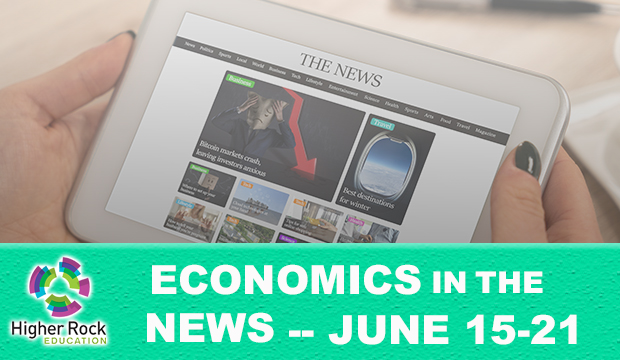Economics in the News – June 15-21
Economics impacts our lives every day. Below are some of the top storylines from this past week related to economics.
- Weekly layoffs and unemployment insurance filings continued to decrease from the peak of 6.9 million people in the last week of March. However, a staggering 1.5 million workers applied for unemployment benefits during the week ending June 13. Total claims in the past 13 weeks now total 45.7 million. [NPR]
- Cultural differences in the relationship between companies and their employees have softened the hardship for many workers in Japan, while contributing to record layoffs in the United States. Despite entering a recession, Japan’s unemployment rate since the coronavirus pandemic is little changed at 2.6%. Wages and working hours have remained stable. Like the US, containment measures were imposed and businesses have shut down to avoid a major spike in coronavirus cases. [The New York Times]
- Consumers and businesses may see the benefit from higher pay. Two new studies find that raising a worker’s minimum wage will increase productivity, making it possible for businesses to offer a higher-quality service without increasing their cost. Customers would be willing to pay more because of the improved service. [The New York Times]
- Retail sales in May increased by 17.7%, marking an encouraging sign that the economy has started its recovery. What’s the ripple effect of that increase in sales for the rest of the economy? More money spent at stores translates into more being produced, the rehiring of workers, not only at the stores, but manufacturers, and companies that service the rehired workers who now have additional income. [The Wall Street Journal]
- 31 new cases of coronavirus have forced the Chinese government to cancel flights and close schools in Beijing amid a second wave of the deadly virus. More than 1,200 flights have been canceled in China’s capital city where the emergency response was raised to its second-highest level. [The Post]
